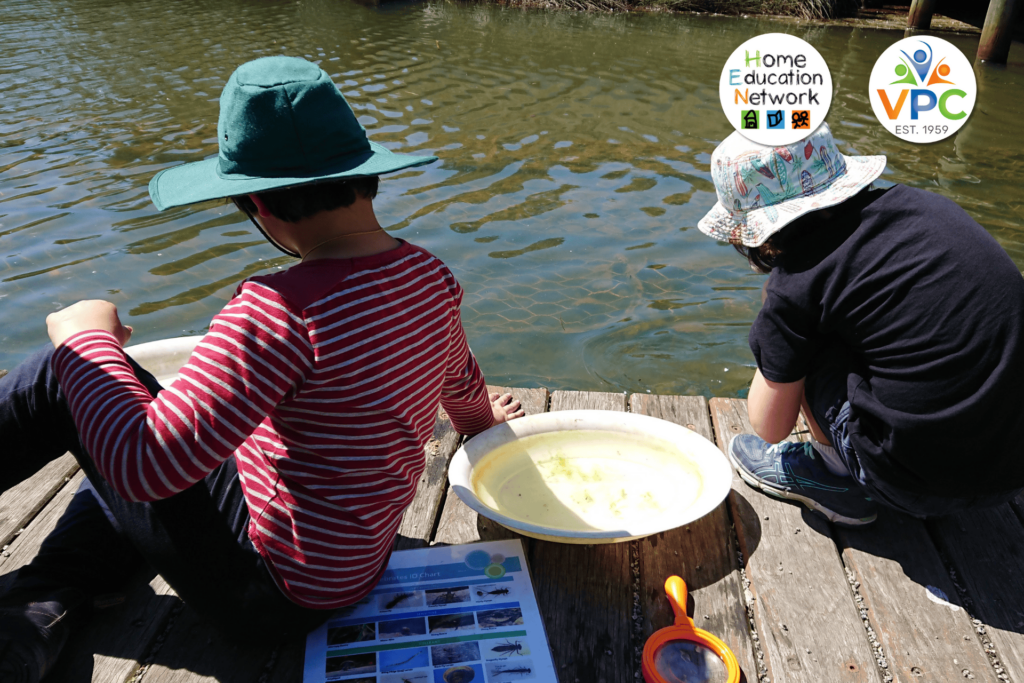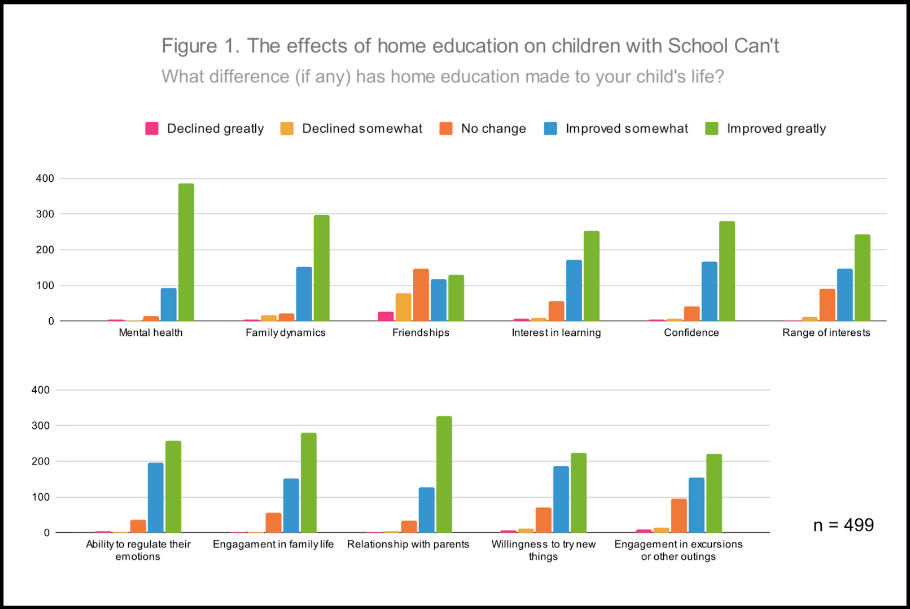
WHAT WE KNOW ABOUT HOME EDUCATION FOR KIDS WITH SCHOOL CAN’T – HEN’S SENATE INQUIRY SURVEYS
Home Education Network
A note about the language used: We believe that children who struggle with school attendance are genuinely unable to attend school without outward difficulties, rather than it being a willful choice. For this reason, the term ‘School Can’t’ is used in place of ‘School Refusal’ throughout this article.
Going to school is an expectation that society puts on children and parents. Most children cope with this expectation, but some cannot.
‘School refusal’ (School Can’t) is a common precursor to families choosing to home educate their children. This often comes after years of parents and children persisting in coming up with strategies to mitigate the anxiety and stressors that have led to School Can’t, and/or attempting to reintegrate children back into a school setting (mainstream as well as alternative settings).
The Home Education Network (HEN) ran two surveys and made three submissions to the 2022 Federal Senate Inquiry into ‘The national trend of school refusal and related matters’. The surveys had 616 and 540 respondents respectively.
Our submissions spoke to home education’s overwhelmingly positive outcomes for kids who struggle to attend school and experience ‘School Can’t’, but also provided a wealth of information on how families are impacted by School Can’t. Children with a disability are overrepresented (80%) in the School Can’t cohort. The implications for possible discrimination in the right to access quality education against children with disabilities is clear.
The effects of School Can’t on children and their families were, in most cases, severe. The eventual decision to home educate is affected by many factors, including finances, misinformation and lack of information, lack of support and lack of self-belief.
Our survey data demonstrated that home education can have overwhelmingly positive effects (Figure 1), with improvements in mental health, emotional regulation, interest in learning, confidence, relationships and engagement. The words ‘life saving’ and ‘life changing’ were used frequently by survey respondents. However, parents and caregivers who choose to home educate are frequently unsupported, and had to find their own way there. Friends, family and professionals could be supportive, but they could also present opposition and were often misinformed about what home education is, and what it isn’t.

The importance of connecting new home educating families to the existing home education community was evident in the survey responses. The sooner that the family connects with their local and wider home education community, the sooner the parents feel supported, and, when children are ready, they can begin to form friendships, take part in excursions and camps, renew their enthusiasm for learning, and re-engage with their education. Those who reported a large decline in friendships were generally those whose children had been hospitalised before commencing home education, who reported greatly increased anxiety when at school, and those who had been home educating for less than two years. Although the number of friendships may have declined, the quality of friendships that remained or were made after commencing home education were deeper and more meaningful.
Our survey shows something that the long-time home education community has long recognised: the benefits of home education take time to fall into place, and when they happen they are overwhelmingly positive. The most consistent improvement is in mental health, and this cannot be emphasised enough. In a time when ‘mental health’ is the catch- cry of professionals, politicians and media everywhere, this is significant. Children with School Can’t generally need time to heal, and time to rediscover their love of learning. Time for deschooling during the transition from school to home education is vital for many children who are traumatised by anything that is reminiscent of school. It also takes time for families to form connections within their local and wider home education community, and this greatly influences the successful development of friendships and support networks.
There were many other great and significant improvements in children’s and families’ lives since commencing home education. As well as mental health, the improvements in interest, engagement and educational attainment in children with School Can’t once they begin home education were marked (Figures 2 and 3). It is important to note that the length of home education has a large effect on these improvements, and this is unsurprising, given that many of the children with School Can’t who come out of school are often traumatised, in a state of chronic stress, and need time to decompress and deschool before engaging with learning once more.


It was also clear from the results of the surveys that the earlier children commence home education after starting to experience School Can’t, the earlier the improvements start to be seen.
Social and emotional learning is greatly enhanced by the commencement of home education (Figures 4 and 5). These are skills that are crucial to managing emotions, setting and achieving goals, establishing positive relationships, and making responsible decisions, and are thus vital to educational attainment. They are also associated with better job prospects and improved overall lifelong well-being, and effective communication and collaboration.


The survey results also suggest that children with disabilities and additional needs who are well-supported through home education, and have the time to develop social and emotional skills, are able to engage in more advanced course-work, paid work and further study.
It is also clear that home educated children with School Can’t are well-able to engage in the community, use their initiative to establish their own businesses, take charge of their education and find pathways that utilise their strengths to achieve independence and contribute meaningfully to society.
Families who have experienced School Can’t and subsequently embraced home education for their children demonstrate profound improvements in overall wellbeing and attainment for those children, including academic, social and emotional wellness, and future prospects.
Home education allows children to rediscover their love of learning, to find what works for them and how they want to direct their own learning. Autonomy is a wonderful, empowering experience. They can pursue their interests, in a calm, relaxed environment, make connections with other families in the home education community, and interact at a level that suits them. This leads to positive outcomes, and their education trajectory can return to a path that leads to a fulfilling, productive and engaged life.
You can read the full article on our website here.
Pavlina McMaster has been home educating her children for 12 years. She has worked as a veterinarian, an environmental scientist/ecologist, a researcher, a lecturer and tutor, a website designer, a dog trainer, a teacher, a copywriter, a content creator, a logistical coordinator, and in customer relations.
Pavlina voluntarily runs a not-for-profit community group aimed at reducing the cost of living. She has also held volunteer roles in autism support groups, horse riding clubs, dog training clubs, toy library, on the Victorian Home Education Advisory Committee and is now the Assistant Coordinator of the Home Education Network (HEN).
In Pavlina’s role for HEN, her passion is in supporting families before and during their home education journey, in providing education and information sessions to the wider community, and in advocating for children and their families in the education space.
Pavlina has lived experience of School Can’t, neurodivergence and disability.

